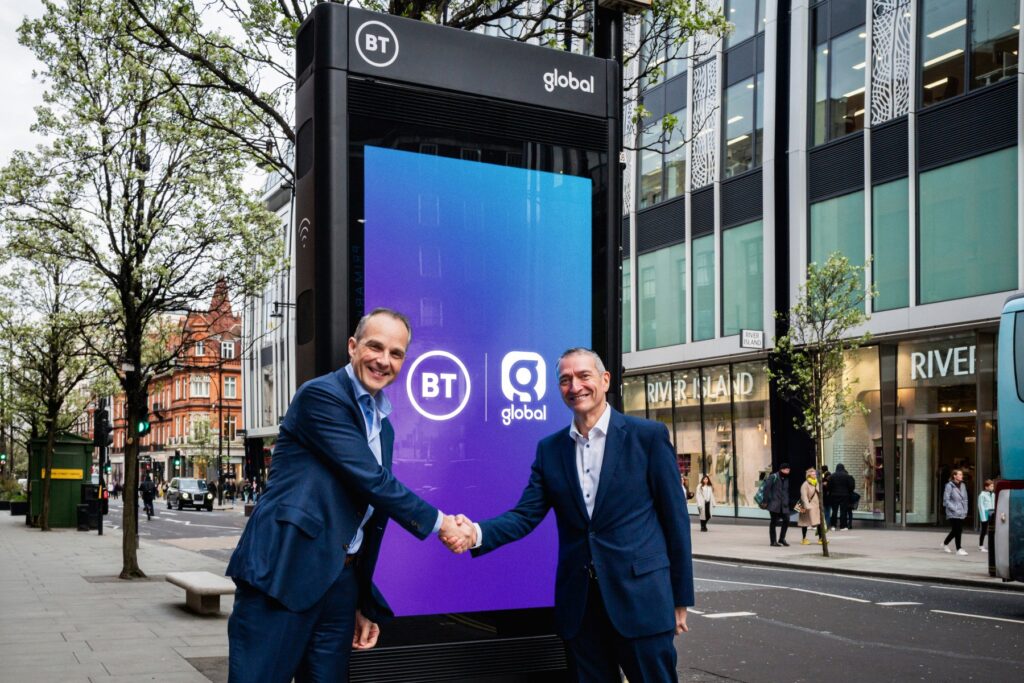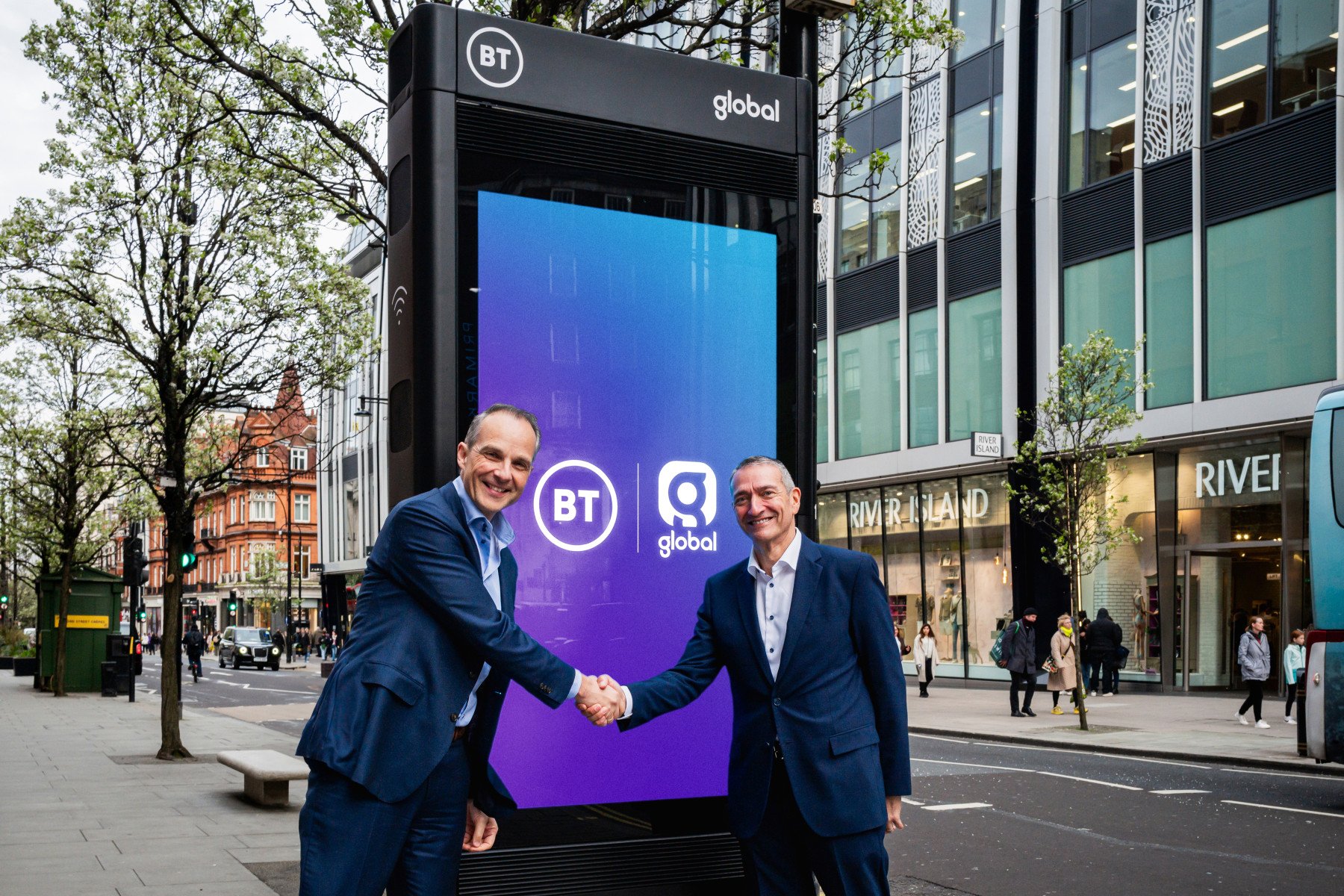BT has announced a 10-year partnership with media group Global, that will revolutionize its traditional payphones and kiosks into cutting-edge street WiFi hubs across the UK, with the capacity to deliver up to 1 GBPS speed.
Covering more than 200 towns and cities, this initiative aims to provide digital connectivity to communities nationwide.
Under this collaboration, Global will undertake the conversion of over 2,000 conventional BT payphones and kiosks into state-of-the-art street hubs beginning in 2025. These hubs, part of BT’s street furniture portfolio, will offer public WiFi, live communication services, and 4G/5G connectivity, leveraging EE’s network.
While, BT will continue to deliver mobile and WiFi services to these units, Global will lead marketing efforts and monetize advertising sales for BT’s existing 959 street hubs.
The modernized street hub units promise high-speed internet of up to 1Gbps within a 150-meter radius. They boast features such as a dedicated 999 calling button, USB ports for free device charging, touch-screen tablets for real-time public information, and digital advertising screens for local businesses.

Bas Burger, CEO of BT’s Business division, expressed excitement about the partnership’s potential. He stated, “BT’s payphones have long been an iconic feature on the UK’s streets – and with the way we all communicate changing, today’s announcement marks a further step into the future.”
He added, “By bringing together BT’s rock-solid connectivity with Global’s unrivaled expertise in out-of-home advertising, we can almost triple this number over the next decade.”
This collaboration underscores BT’s commitment to enhancing connectivity and ushering in a new era of digital communication infrastructure across the UK.
In Africa, where outdated telecommunications infrastructure remains prevalent, collaborations such as this establish a model for innovative solutions to narrow the digital gap. Transforming legacy assets into contemporary street hubs align with the demands of a digital era, serving as a catalyst for forthcoming endeavors aimed at enhancing connectivity in Africa, where traditional infrastructure often faces susceptibility to damage. Equipment maintenance and reuse can bolster connectivity and digital accessibility, in Africa, and especially for marginalized populations.





